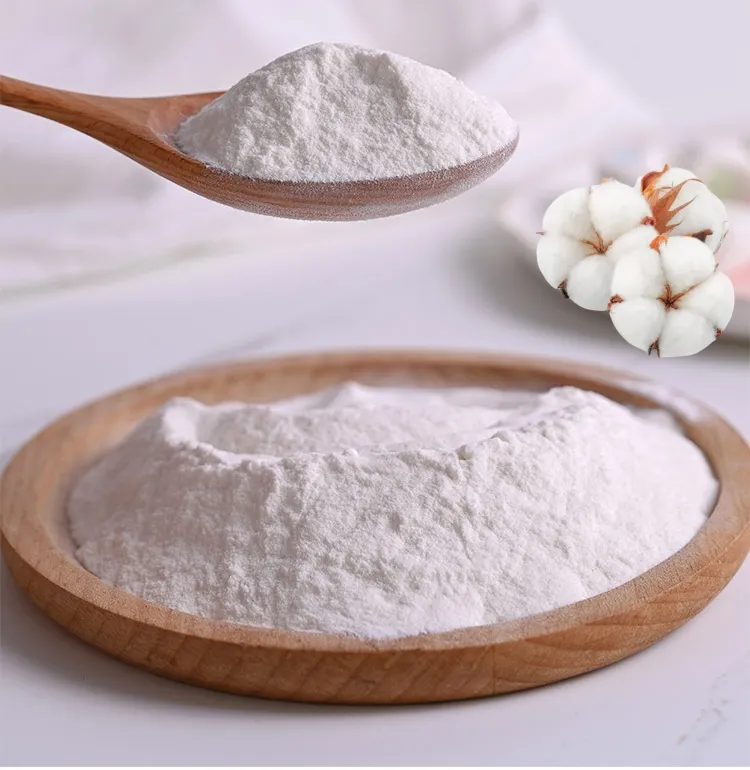Hebei Tangzhi Technology Co., Ltd.

what is hydroxypropyl cellulose
Yan . 25, 2025 01:02
Back to list
what is hydroxypropyl cellulose
Hydroxypropyl cellulose, often abbreviated as HPC, stands as a prominent polymer in the realm of pharmaceuticals and consumer goods due to its unique properties and diverse applications. Known for its solubility in both water and organic solvents, HPC is a versatile cellulose ether that offers multiple benefits across various industries. Derived from cellulose, the most abundant organic polymer on Earth, HPC gains its distinctive characteristics through chemical modification, enhancing its adaptability and functionality in numerous applications.
Environmental considerations have also highlighted the importance of sustainable and biodegradable materials, and hydroxypropyl cellulose fits the bill. As an eco-friendly option, HPC contributes to the development of greener products and processes. Its biodegradability ensures that HPC-based products do not persist in the environment, aligning with global efforts to reduce ecological footprints. Despite its widespread use, the handling of hydroxypropyl cellulose requires professional expertise. Manufacturers and formulators must consider factors such as solubility, viscosity, and molecular weight to optimize HPC's performance in various applications. Technical support from experienced professionals ensures that HPC is used effectively, maximizing its benefits while maintaining safety and compliance with industry standards. Continuous research and innovation in the field of hydroxypropyl cellulose promise new applications and improved formulations. Advances in nanotechnology, for example, are paving the way for HPC to be used in drug delivery systems, where it can play a crucial role in targeting specific sites within the body and enhancing the bioavailability of active pharmaceutical ingredients. In conclusion, hydroxypropyl cellulose is a multifaceted polymer with a significant impact across diverse industries. Its ability to enhance product performance, coupled with its eco-friendly nature, makes it an invaluable tool in the modern-day manufacturing landscape. From improving the quality of life through better pharmaceuticals and personal care items to supporting sustainable industrial practices, HPC's versatility and reliability position it as an essential component in the continuous quest for innovation and excellence.


Environmental considerations have also highlighted the importance of sustainable and biodegradable materials, and hydroxypropyl cellulose fits the bill. As an eco-friendly option, HPC contributes to the development of greener products and processes. Its biodegradability ensures that HPC-based products do not persist in the environment, aligning with global efforts to reduce ecological footprints. Despite its widespread use, the handling of hydroxypropyl cellulose requires professional expertise. Manufacturers and formulators must consider factors such as solubility, viscosity, and molecular weight to optimize HPC's performance in various applications. Technical support from experienced professionals ensures that HPC is used effectively, maximizing its benefits while maintaining safety and compliance with industry standards. Continuous research and innovation in the field of hydroxypropyl cellulose promise new applications and improved formulations. Advances in nanotechnology, for example, are paving the way for HPC to be used in drug delivery systems, where it can play a crucial role in targeting specific sites within the body and enhancing the bioavailability of active pharmaceutical ingredients. In conclusion, hydroxypropyl cellulose is a multifaceted polymer with a significant impact across diverse industries. Its ability to enhance product performance, coupled with its eco-friendly nature, makes it an invaluable tool in the modern-day manufacturing landscape. From improving the quality of life through better pharmaceuticals and personal care items to supporting sustainable industrial practices, HPC's versatility and reliability position it as an essential component in the continuous quest for innovation and excellence.
Next:
Latest news
-
MHEC Cellulose Premium Additive | Enhanced Industrial UsesNewsAug.01,2025
-
Antifoam & Defoamer Solutions | Fast Foam ControlNewsAug.01,2025
-
Hydroxyethyl Cellulose for Paint - Superior Thickening SolutionsNewsJul.31,2025
-
Low Substitution - Hydroxypropyl Cellulose for Enhanced DissolutionNewsJul.30,2025
-
High Performance Gypsum Retarder Chemical for Plaster IndustryNewsJul.30,2025
-
High-Quality VAE Powder for Construction & Adhesives SolutionsNewsJul.29,2025





















